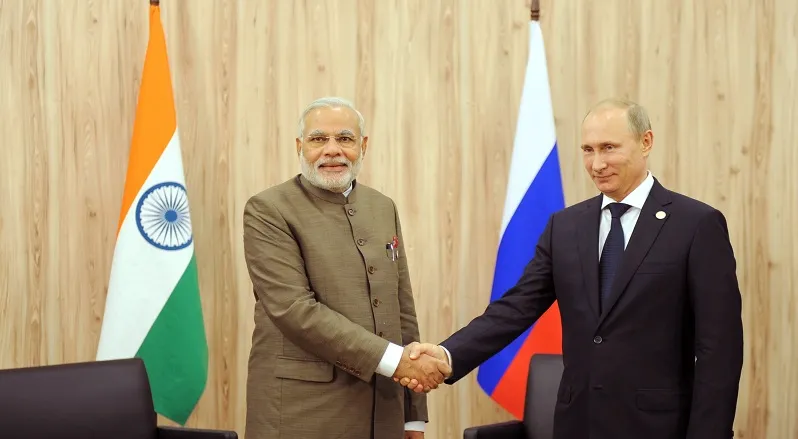[BRICS Summit] India, Russia to enhance cooperation in space programmes and smart cities scheme
India today signed an agreement with Russia for cooperation in the implementation of 'smart cities' programme and use of IT solutions of the Russian companies. The agreement was signed between JSC Rusinformexport and the Urban Development Ministry, Ministry of Home Affairs, National Buildings Construction Corporation Ltd and the Haryana government, according to an official statement. The agreement was signed in Goa where Prime Minister Narendra Modi and Russian President Vladimir Putin held wide-ranging talks covering the entire expanse of bilateral engagement.

India plans to have 100 smart cities by 2022. Out of which 60 have been chosen -- 20 in January, 13 in May and 27 last month. The remaining will be picked by 2018. Meant to change the way urban India lives, smart cities will enjoy uninterrupted power and water supply, internet connectivity, e-governance, along with quality infrastructure. Besides this, the two countries also sealed a number of big ticket defence deals including purchase of missile systems, frigates and joint production of helicopters besides deciding to deepen cooperation in a range of crucial sectors even as the two close allies resolved to fight the menace of terrorism unitedly.
India and Russia today signed an MoU for setting up and utilising ground stations in each other's territories to enhance the usefulness of their respective navigation satellite constellations of NavIC and GLONASS. The two sides agreed to enhance their engagement in the field of space including cooperating within the Scientific and Technical Subcommittee of the UN Committee on Space.
Also read : BRICS to advance agenda for development, peace & reform: Narendra Modi
Prime Minister Narendra Modi said the two countries have also agreed to set up a Science and Technology Commission. It was also decided by Modi and President Vladimir Putin that the space agencies of India and Russia will "engage more actively" on space technology applications, launch vehicle, satellite navigation, space science and planetary exploration.
The two sides agreed to have a consolidated approach, within the Scientific and Technical Subcommittee of the UN Committee on Space, to the preparation of the set of guidelines for the long-term sustainability of outer space activities and regulatory provisions on safety of space operations, as the most important component of the said document, the joint statement said.


![[BRICS Summit] India, Russia to enhance cooperation in space programmes and smart cities scheme](https://images.yourstory.com/cs/wordpress/2016/10/maxresdefault-1-1.jpg?mode=crop&crop=faces&ar=16%3A9&format=auto&w=1920&q=75)




